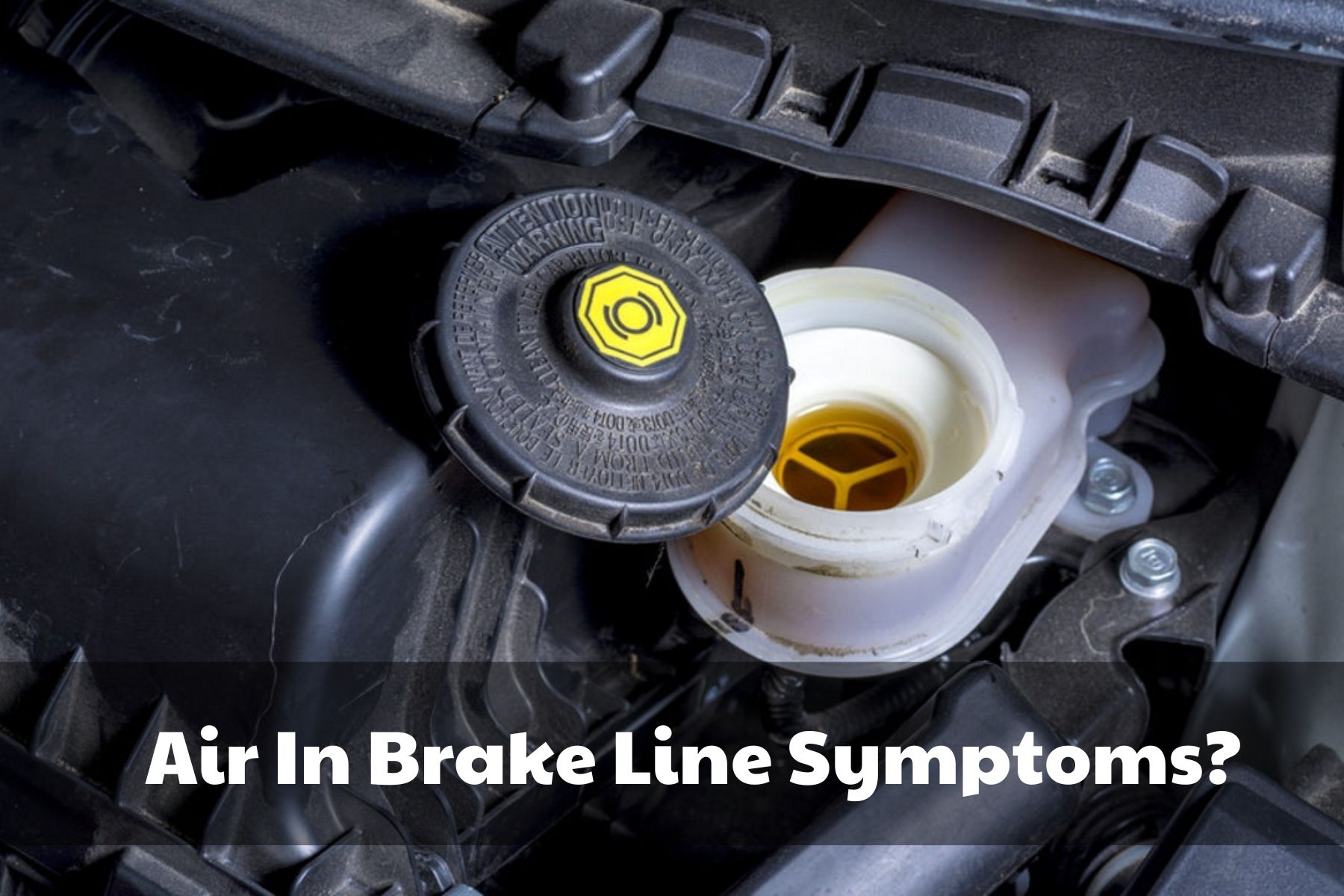Do you hear a squeaking sound when you press down your car’s brakes? Are you feeling the brakes pulse or vibrate as you drive? If so, there is likely an issue within the brake line system that may need to be addressed. Incorrect amounts of air in between essential components can cause weak and unresponsive braking power.
Knowing how to identify potential indicators of an air filled brake line, as well as what causes it and how to safely fix it is important for any car owner! In this blog post, we’ll provide some insight into what exactly air in brake lines is as well as explore air in brake line symptoms and tips for prevention.
What Are The Symptoms Of Air In Brake Lines?
If you notice any of the following symptoms when applying your brakes, it could indicate that air has entered the brake lines:
- When you push the brake pedal, it feels spongy or soft
- Braking feels less responsive and less effective than usual
- The brake pedal sinks too far down or reaches the floor when pressed
These symptoms can indicate that air is present in the brake lines, which can negatively affect the brake system’s overall performance.
If you experience any of these symptoms, it is advisable to have your brakes inspected by a certified mechanic to ensure safe driving.
What Causes Air In Brake Lines?

Air can enter brake lines due to several reasons. One common cause is when the brake pads become worn out, causing the hydraulic pistons to extend further to make contact with the brake disc. This creates a void in the brake system, allowing air to enter.
Additionally, air can also enter through human error during brake bleeding. Brake fluid tends to absorb and store water, which can cause steam to form on top of the brake fluid container during hard braking events. The pressure from this steam turns it into water, trapping air in the brakes.
How do I get air out of my brake lines?
Related: How to get air out of brake lines without bleeding?
Tips for preventing air from entering brake lines
- Regularly check for signs of leakage or wear and tear on the brake system.
- Change brake fluid regularly to prevent contaminants such as moisture and dirt from causing issues within the brake line system over time.
- Replace brake lines at least once a year to ensure they are in good condition and reduce the risk of air entering the brake lines.
- Schedule an appointment with an auto repair shop for a full inspection if you’re unsure about anything related to your brakes.
- Bleed the brakes as soon as possible if you experience any signs of air in the brake lines, such as squishy brakes or a spongy pedal.
FAQs about Air in brake line symptoms
When Should I Replace My Brake Lines?
It’s recommended that you replace your brake lines at least once a year. This will ensure that your brakes are in top condition and reduce the risk of air entering the brake lines. If you’re unsure, schedule an appointment at an auto repair shop for a full inspection.
Will air work itself out of brake lines?
The answer is quite simply, no. Different from some mechanical systems in vehicles, the braking system is designed to be air-tight and therefore not just let air escape of it’s own accord. If you’re experiencing signs of air in your brake lines, like squishy brakes or a spongy pedal, your vehicle may need to be bled out as soon as possible by a professional mechanic.
Don’t wait on these symptoms to improve, they will only worsen over time, making driving even more hazardous.
What happens if you drive with air in brake lines?
Driving with air in your brake lines can be extremely dangerous and should be avoided at all costs. Air bubbles in the brake line reduce the amount of pressure that’s being sent to the brakes, which translates into a delayed response time or even an inability to stop completely. This is especially true when driving on wet roads or downhill, as there will be an even more significant decrease in braking power.
What does air in brake lines sound like?
If you’re hearing a hiss, it could be because your brake booster is releasing air. This means there’s possibly a leak somewhere in the booster diaphragm, master cylinder gasket, or vacuum hose. That’s why if you do hear this noise coming from your brakes, it’s important to take them into a mechanic and have them checked out as soon as possible.
Why are my brakes soft after hitting a bump?
This can be a sign of air in the brake lines. When an excessive amount of force is applied to the braking system, it can cause tiny cracks in the brake disc– resulting in there being a void in the brake system which allows air to enter.
Why are brakes spongy after bleeding?
Brakes may feel spongy after bleeding due to degraded rubber hoses that collapse internally, even if they appear fine from the outside.
What does air trapped in brake line feel like?
If you’ve ever experienced air trapped in your brake lines, you would feel a soft spongy sensation when pressing down on the brakes. It is important to take your car into a mechanic as soon as you notice this symptom, as it could be an indication of possible damage to the brake system.
Why are brakes spongy after bleeding?
Can You Get Air In Brake Lines After Bleeding?
Yes, it is possible for air to enter your brake lines even after the bleeding process. This could be due to a faulty component in the braking system, or simply because of not properly bleeding out all the air during the initial bleed. Either way, make sure to check in with a mechanic if you’re experiencing any problems with your brakes.
Can Air In Brake Lines Cause Pulsating Of The Brake Pedal?
Indeed it can, air in the brake lines interferes with the pressure build up required during braking and this reduces overall stopping power as well as causing a pulsating sensation when pressure is applied to the brake pedal.
Can Air In The Brake Line Cause The ABS Light To Come On?
Yes, air in the brake lines can cause the ABS light to come on as it interferes with the pressure sensors and causes them to malfunction. It is important to get your brakes checked out by a mechanic as soon as possible if you see this warning sign.
Conclusion
Knowing the potential indicators of air in brake line symptoms can make a world of difference if you ever find yourself in a situation where there is an issue with your brakes. Always be mindful and check your brakes regularly. In the case that you notice any aforementioned symptoms, it is essential to get your brakes checked and serviced right away. A mechanic or experienced technician can diagnose the problem and advise as to what needs to be done.
Furthermore, have regular preventative maintenance done on your car or truck and do not wait for signs of trouble to appear. Taking proactive measures when it comes to automotive maintenance is key in ensuring that you, your passengers, and other drivers stay safe on the roads.

I’m Timothy Ballard, owner of a used car dealership in Springfield. I love just about everything automotive, but I have a special place in my heart for trucks. I’m an ASE Certified Master Technician, so I know my way around a car. In my spare time, I enjoy traveling with my family and hiking new trails.

The following symptoms may indicate the presence of air in your brake lines:
Spongy brake pedal sensation upon pressing down.
Reduced brake effectiveness and a soft feel.
Excessive brake pedal depression or reaching the floor.
These indicators suggest the need for attention to your brake system to ensure optimal performance.